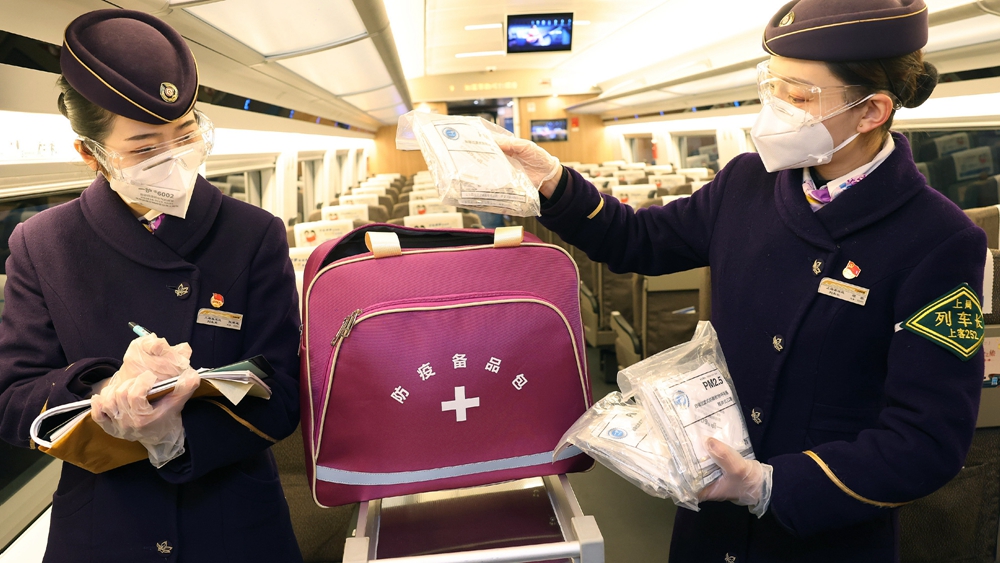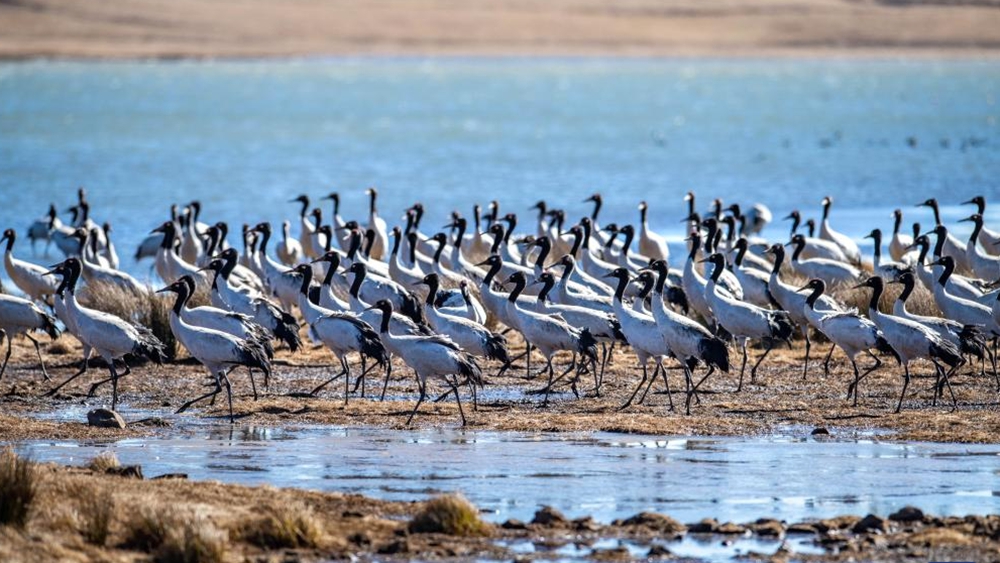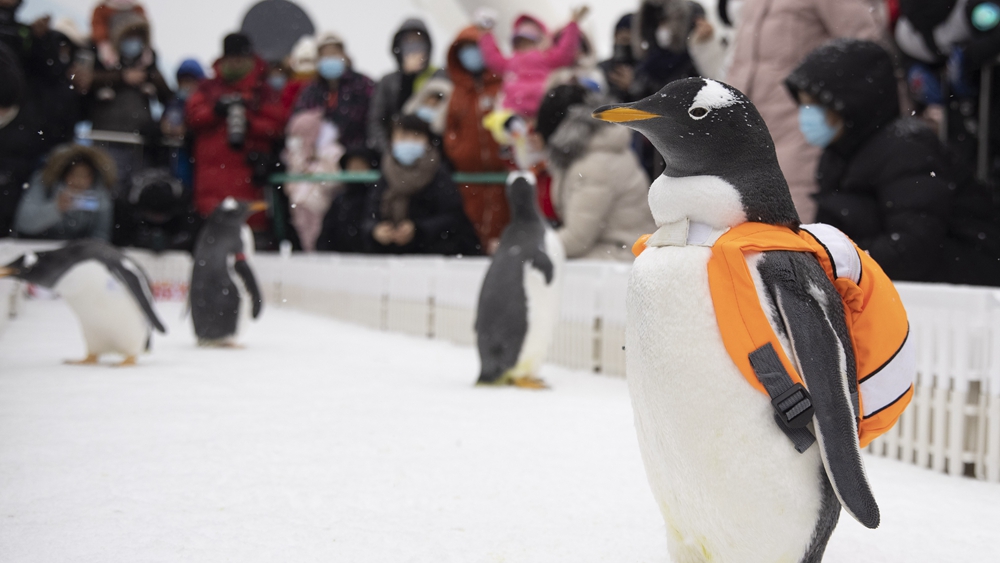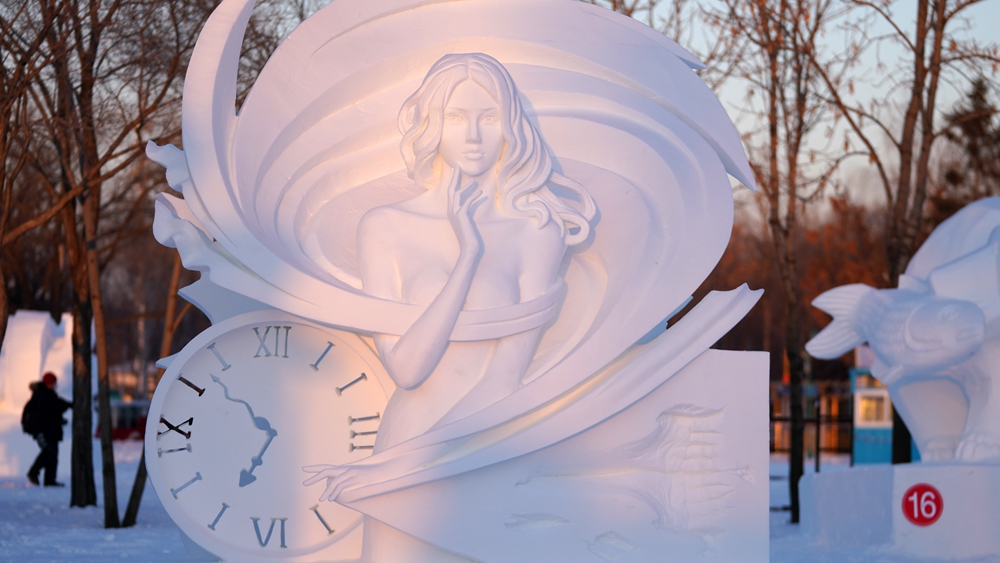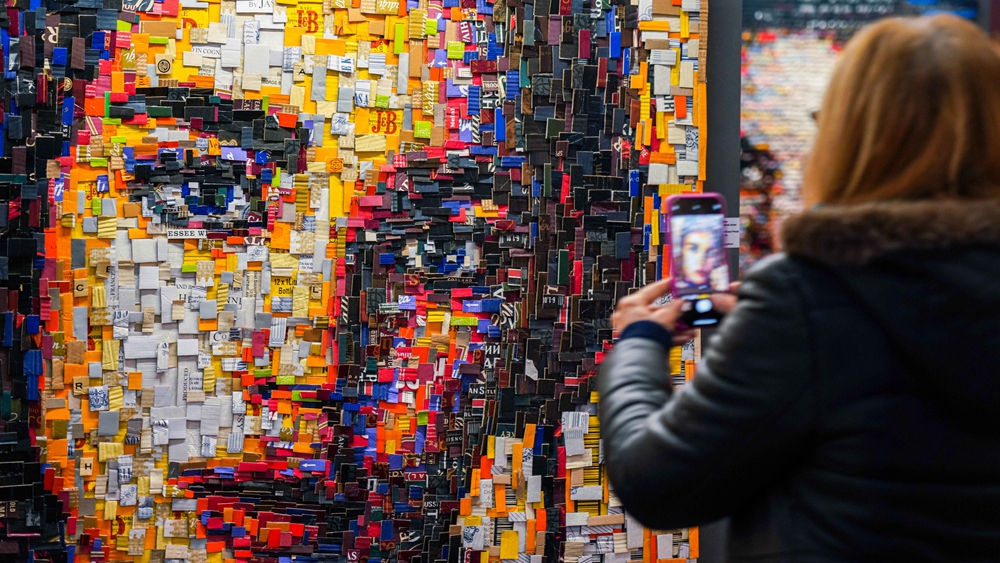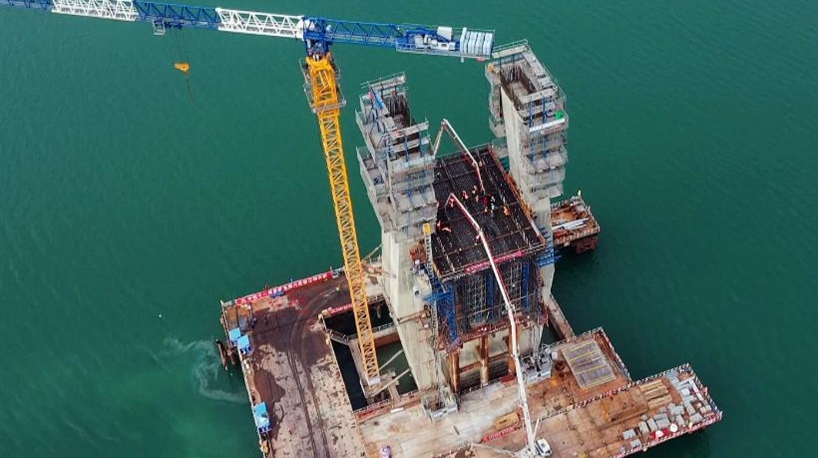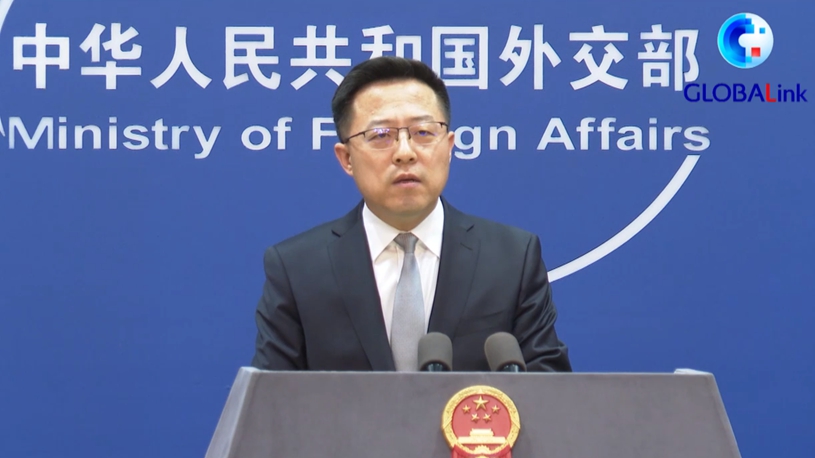-- With Beijing 2022 approaching, rumors, speculation and false claims abound, but a closer look at the facts reveals that there is no truth behind those claims.
-- Fake snow is fake news. Artificial snowmaking for Beijing 2022 has little impact on the local water supply and ecology thanks to China's world-leading water-conserving equipment.
-- No cybersecurity risk in using your phone in China. "My 2022" is an multi-functional app that provides convenience for Games participants. It is not obligatory to download it and the app only accesses related phone features upon permission from users.
BEIJING, Jan. 19 (Xinhua) -- With roughly two weeks to go before the 2022 Olympic Winter Games opens in Beijing, rumors, speculations and false claims abound. A closer look at the facts reveals that there is no truth to those claims.
The following are six news reports recently released with unjust claims, and the facts and figures behind them.

A robot maintains a facility for delivering dishes at the Media Dining Hall of the Main Media Center for the 2022 Olympic and Paralympic Winter Games in Beijing, capital of China, Jan. 10, 2022. (Xinhua/He Changshan)
No. 1: Eating Chinese meat may lead to a doping violation
The claim: An international news agency reported that Germany's Anti-Doping Agency sent a message to athletes heading to Beijing 2022 warning them not to eat Chinese meat for fear of falling foul of doping regulations, claiming that athletes may risk ingesting clenbuterol.
Fact check: Clenbuterol is used by farmers to promote growth and muscle leanness in animals but is banned in many countries, including China, because of its risks to human health.
The Beijing Organizing Committee for the 2022 Olympic and Paralympic Winter Games (BOCOG) has established a three-tier management scheme to ensure food safety, Yu Debin, head of BOCOG's Games Service Department, told Xinhua.
Following consultation with experts, over 200 companies have been selected as raw material and food suppliers for Beijng 2022. Strict management of quality control has been applied throughout the process from planting and cultivation, producing and processing, transportation and storage, cooking, catering and garbage recycling. The whole process is traceable and verifiable, said Yu.
From the sampling survey in the past two years, 98 percent of meat in China passed safety qualifications, according to Zhu Yi, an associate professor of food safety at China Agricultural University. That means the possibility of ingesting clenbuterol is close to zero, Zhu said.
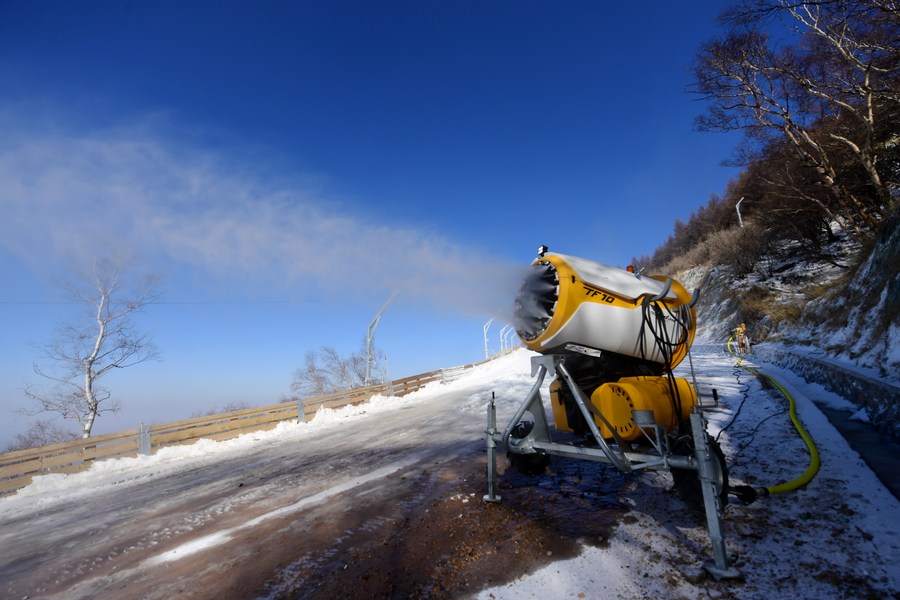
A photo taken on Nov. 16, 2021 shows the snowmaking system in National Alpine Skiing Centre in Beijing, capital of China. (Xinhua/Zhang Chenlin)
No. 2: Artificial snow is fake snow and triggers environmental concerns
The claim: In an article titled "Mounting concern over the environmental cost of fake snow for Olympics" published last November, a British daily newspaper quoted a University of Strasbourg professor saying that Beijing 2022 "could be the most unsustainable Winter Olympics ever held", as artificial snow was water- and energy-intensive, damaging soil health and causing erosion.
Fact check: Artificial snow and fake snow have to be strictly separated at first, as snow is just the solid state of water. Beijing 2022 organizers have vowed to deliver a sustainable and eco-friendly Games. In line with this commitment, snowmaking at some of the Beijing 2022 venues is anything but detrimental to the environment.
Artificial snow was first used at the 1980 Lake Placid Olympic Winter Games. Around 90 percent of snow used at the Alpine skiing venue for the PyeongChang 2018 Winter Olympics was artificial, while man-made snow was also a feature of Vancouver 2010 and Sochi 2014.
Former International Ski Federation (FIS) freestyle coordinator Joseph Fitzgerald told Xinhua that snowmaking is a requirement by the FIS in order to hold ski competitions that can be separated in time. "If you want to wait for nature to provide you with all of the required material to ski on, you risk not being able to organize a competition."
As water occurs in three different states - liquid, solid or vapor - Fitzgerald explained that snow is just water that is in a transitional phase due to the temperatures. It can either occur naturally, or it can be man-made.
Competition snow requires a higher density than recreational snow in order to meet the requirements of the FIS and to ensure conditions are consistent and fair for each competitor.
"Fake snow is like fake news. That's interesting fake news about fake snow. It is quite comical when I read these so-called expert remarks!" Fitzgerald said.
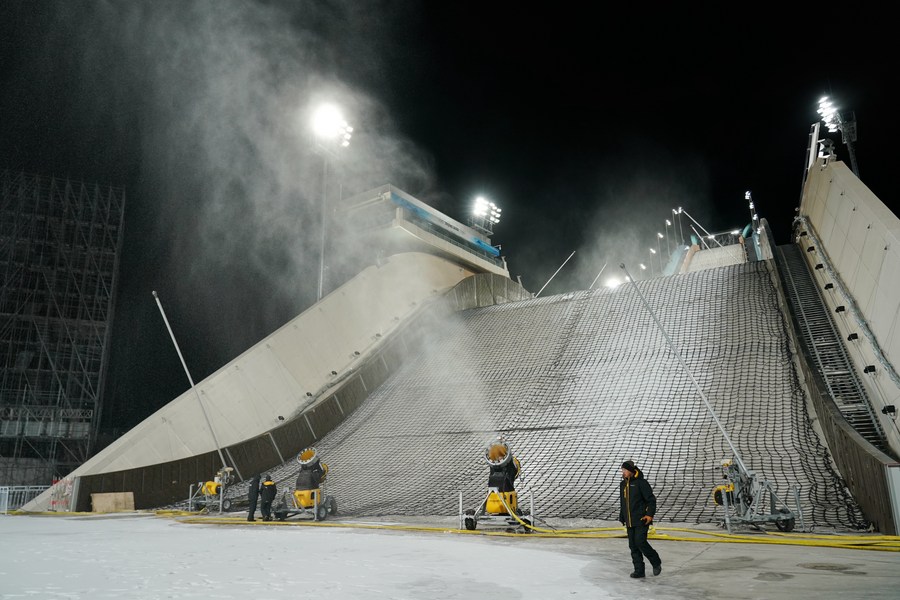
A photo taken on Dec. 12, 2021 shows the snowmaking system in the Shougang Big Air venue in Beijing, capital of China. (Xinhua/Zhang Chenlin)
According to Nikolai Belokrinkin, a course design expert who has helped to organize international Alpine skiing competitions since 2008, the FIS requires to have a certain number of kilograms per cubic meter of snow, and this is frozen water. "You can change the natural snow to these conditions, and it doesn't matter how you produce it, either from nature or from the snowmaking system. The conditions are the same."
"Snowmaking is not a waste of water. The water will come back to nature. It is a basic physics law that everything is a cycle. It's not going out," he commented.
A BOCOG spokesperson said that artificial snowmaking has little impact on the local water supply and ecology thanks to China's world-leading water-conserving equipment for artificial snowmaking.
During the snowmaking process for Beijing 2022 venues, the collected natural precipitation and the overland runoff will be primarily used, and an intelligent system will help decide the timing for snowmaking based on the weather conditions, the spokesperson said.
For instance, the intelligent snowmaking system applied at Shougang Big Air helps decide the timing for snowmaking based on the weather conditions and adjusts the water proportion, which lowers the amount of water used by about 20 percent for each cubic meter of artificial snow.
Water demand during the Games accounts for 1.6 percent of the total current water consumption in Yanqing district, according to the Beijing Water Authority.
In the Zhangjiakou competition zone, water demand during the Games accounts for 9.8 percent of the total current water consumption in Zhangjiakou's Chongli district.
Snowmaking is not an irreversible consumption of water resources; instead, the snow-melt water can be recycled into reservoirs. Three reservoirs with a total maximum water storage of 160,000 cubic meters can collect the snow-melt and rainwater through conduits in the Yanqing competition zone and pump up the water for snowmaking in the venues, forming an internal recycle of water resources, according to Sun Xianghui, an engineer from Beijing Beikong Jing'ao Construction Corporation.
In the south of Yanqing, a sewage treatment station has been established to process the sanitary sewage from the competition zone into reclaimed water for plant-watering and toilet use, Sun added.
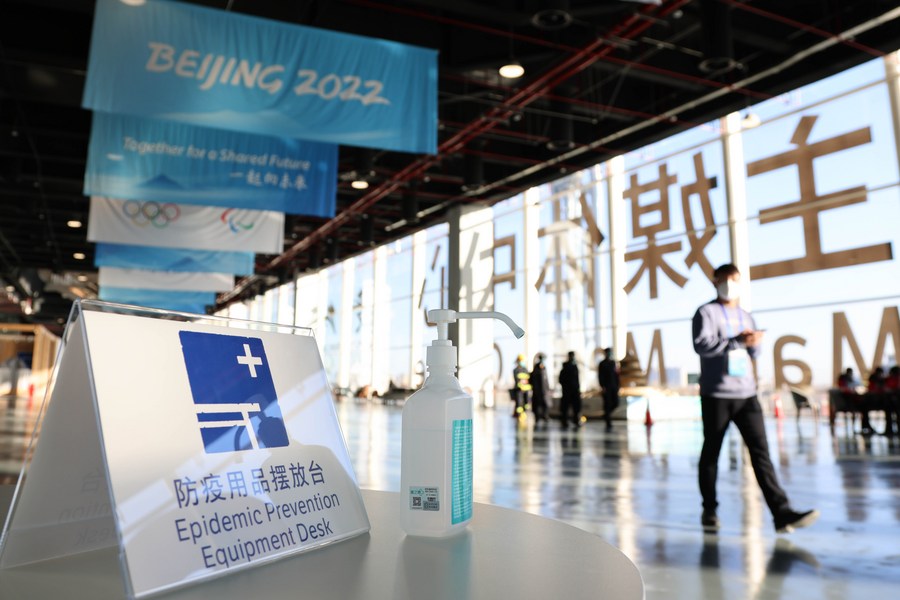
A photo taken on Jan. 10, 2022 shows epidemic prevention equipment at the Main Media Center for the 2022 Olympic and Paralympic Winter Games in Beijing, capital of China. (Xinhua/Xu Zijian)
No. 3: COVID-19 testing during Beijing 2022 opens the door to manipulation
The claim: An international news agency reported that Wolfgang Maier, head of Alpine events at the German Ski Federation, said that a lack of clarity over COVID-19 testing at the Beijing Winter Olympics "opens the door to manipulation", as "you can take anyone out of circulation who gets in your way."
Fact check: Daily testing for COVID-19 and the "closed-loop management system" are the countermeasures outlined in the second edition of the Beijing 2022 Playbook approved by the International Olympic Committee (IOC).
Once within the loop, people will undergo daily testing for COVID-19 and will be unable to access the outside world for the duration of the Games.
COVID-19 countermeasures are key to the safety and success of the Games, said the IOC's Olympic Games Executive Director Christophe Dubi.
"By creating a secure environment, this will provide a unique Games-time experience, and help athletes fully focus on the fundamentals of the Olympic and Paralympic Winter Games - sporting competition," said Dubi.
More than 1,200 people from overseas have entered the closed loop since it has come into operation on January 4.
IOC Olympic Games Operations Director Pierre Ducrey, who has arrived in Beijing and entered the closed loop, said the first impression of the system was "extremely positive".
"The loop is very safe and is a place that is very difficult to compare to anywhere in the world because we have a fully vaccinated and often boosted population which is being tested daily with a PCR," said Ducrey.
"We are in a place that is safe and the behavior of the people is very well understood and applied."
Ducrey added that pre-departure and arrival COVID-19 tests will help to block cases from entering the closed loop, and participants need to conduct daily testing and wear masks of a required standard inside the loop.
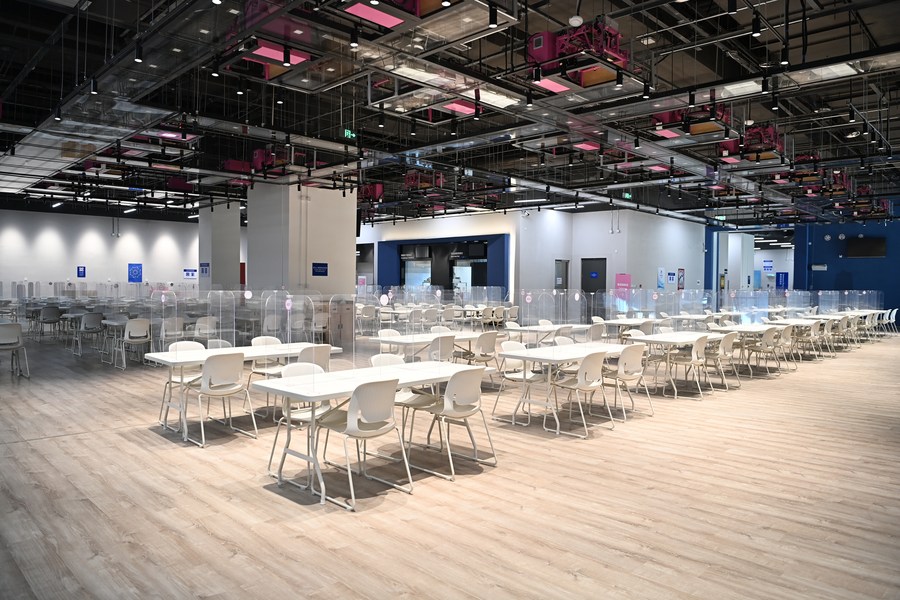
A photo taken on Jan. 10, 2022 shows the Media Dining Hall of the Main Media Center for the 2022 Olympic and Paralympic Winter Games in Beijing, capital of China. (Xinhua/He Changshan)
No. 4: Athletes are complaining about COVID-19 countermeasures and could "boycott" Beijing 2022
The claim: In a recent interview with IOC president Thomas Bach, a German media outlet questioned China's anti-virus policy, saying it has triggered complaints from athletes, coaches and supervisors who have participated in competitions in China over the past few weeks, as they described the policy as "unworthy, unreasonable and inhumane."
Fact check: Beijing 2022 has implemented a "closed-loop management system" in a bid to combat the threat of COVID-19 and to ensure that athletes from around the world can compete in a safe environment.
"We know that the athletes are preparing for the Games with full concentration. We are not aware of any active athletes who call for a sporting boycott of the Games," Bach said.
"We can see that from the reaction of many athletes who are preparing for these Games, they are excited about the Games and also used to anti-virus measures from the qualifying and World Cup competitions. This is not pleasant, but athletes also recognize that such conditions are required amid the pandemic."
Many athletes and NOC officials who are heading to Beijing 2022 have voiced their support of BOCOG's vigorous COVID-19 countermeasures.
"For sure it's going to be a little bit inconvenient, but I think it's necessary to keep the Games safe. And I think as an athlete, I feel safe with all the precautions and I think it's going to work out. With all the measures, it should be a pretty safe event," said Swiss snowboarder Jonas Boesiger.
"The simple fact that we are having the Winter Olympics is a big success. COVID-19 is a big problem on the planet in general. We, the sporting family, are suffering a lot, so our approach is not to complain or to criticize the measures the organizers are taking, but to thank [them for] the opportunity," said Krisztian Kulcsar, president of the Hungarian Olympic Committee.
Michael Ryan, emergencies director for the World Health Organization, said the organization was "confident" in the COVID-19 prevention measures implemented by Beijing 2022 and did not foresee any increased risk of disease transmission.
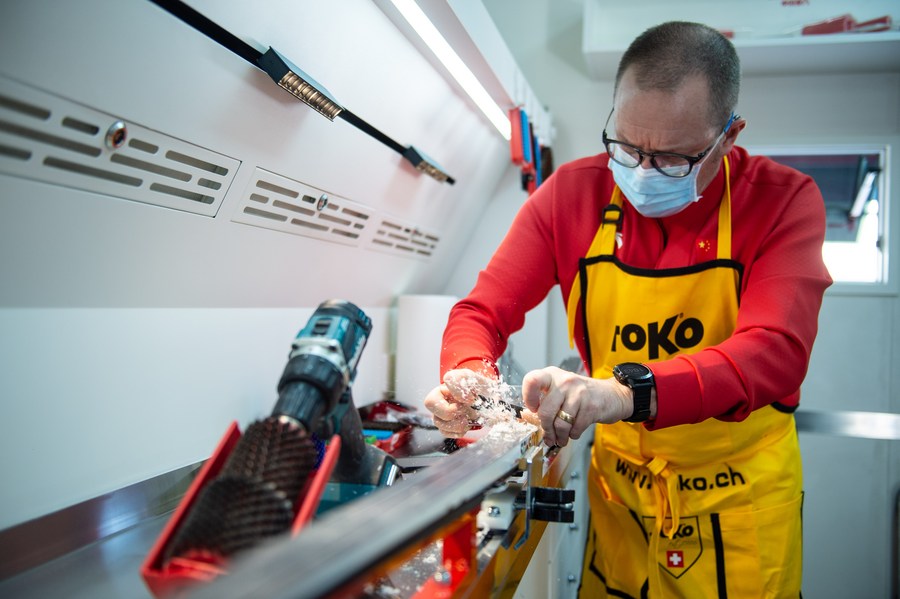
A waxer works in China's first ski wax truck with independent intellectual property in Beijing, capital of China, Oct. 27, 2021. (Xinhua/Chen Zhonghao)
No. 5: No information on fluorinated wax control at Beijing 2022
The claim: FIS has admitted it is unsure "whether the Chinese authorities intend to carry out any controls regarding fluorinated waxes" at the Beijing 2022 Winter Olympics, after several participating teams expressed their confusion.
Fact check: Committed to delivering a "green" Games, Beijing 2022 organizers fully support the decision made by the FIS to ban the substance.
In November 2019, the FIS Council decided that the use of fluorinated ski wax, which has been scientifically proven to have negative environmental and health impacts, will be banned in competition for all FIS disciplines from the 2020-21 season.
Research and development of a hand-held Fluorine Tracker system has been postponed due to the pandemic, as the system requires further testing and design adjustments to ensure absolutely fair and consistent results for all competitors. This leads to the FIS Council's approval of postponing the ban of fluorinated waxes until the start of the 2021-22 season, beginning on July 1, 2021.
BOCOG fully supports the FIS decision to prohibit the use of fluorinated wax, as it is made in terms of environmental protection and falls in line with China's vision of staging a "green" Games, a BOCOG spokesperson told Xinhua.
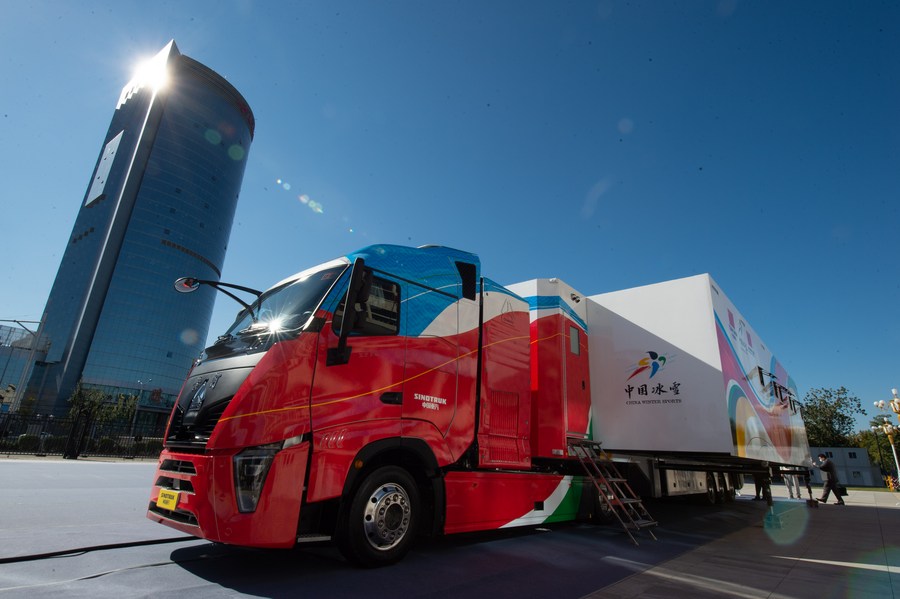
A photo taken on Oct. 27, 2021 shows China's first ski wax truck with independent intellectual property in Beijing, capital of China. (Xinhua/Chen Zhonghao)
No. 6: Cybersecurity is part of the risks for the trip to China
The Claim: According to an American business-focused daily newspaper, the USOPC sent out warnings to athletes that "every device, communication, transaction and online activity may be monitored" when they travel to China. A German newspaper reported that the German Olympic Sports Confederation has asked members of its delegation not to download the "My 2022" app onto their personal phones which they have been advised to leave at home.
Fact check: "My 2022" is a multi-functional app that provides various information services on weather, catering, accommodation, traffic, event news and medal standings to the accredited people of Beijing 2022. The app also serves for epidemic prevention and control and is similar to that used at the Tokyo 2020 Olympics.
According to the second edition of the Playbook, all accredited overseas Olympic participants must submit their health status daily through the health monitoring system for 14 days before entry into China.
It is not compulsory to install "My 2022" on cell phones, as accredited personnel can log on to the health monitoring system on the web page instead, a BOCOG spokesperson told Xinhua.
Data collected is clearly stated in the user agreement and the privacy policy of the app and has been reviewed by the International Olympic Committee.
"My 2022" will inquire about the user's consent to access phone features in pop-up windows when it is opened for the first time. The app won't access related phone features if not in use, and users can turn off the permissions at any time in the system settings without affecting the app operation.
Also, "My 2022" has passed the examination of overseas mobile application markets such as Google, Apple and Samsung.
(Video reporters: Liu Yuting; video editors: Liu Yuting, Cao Ying, Li Qin)■

